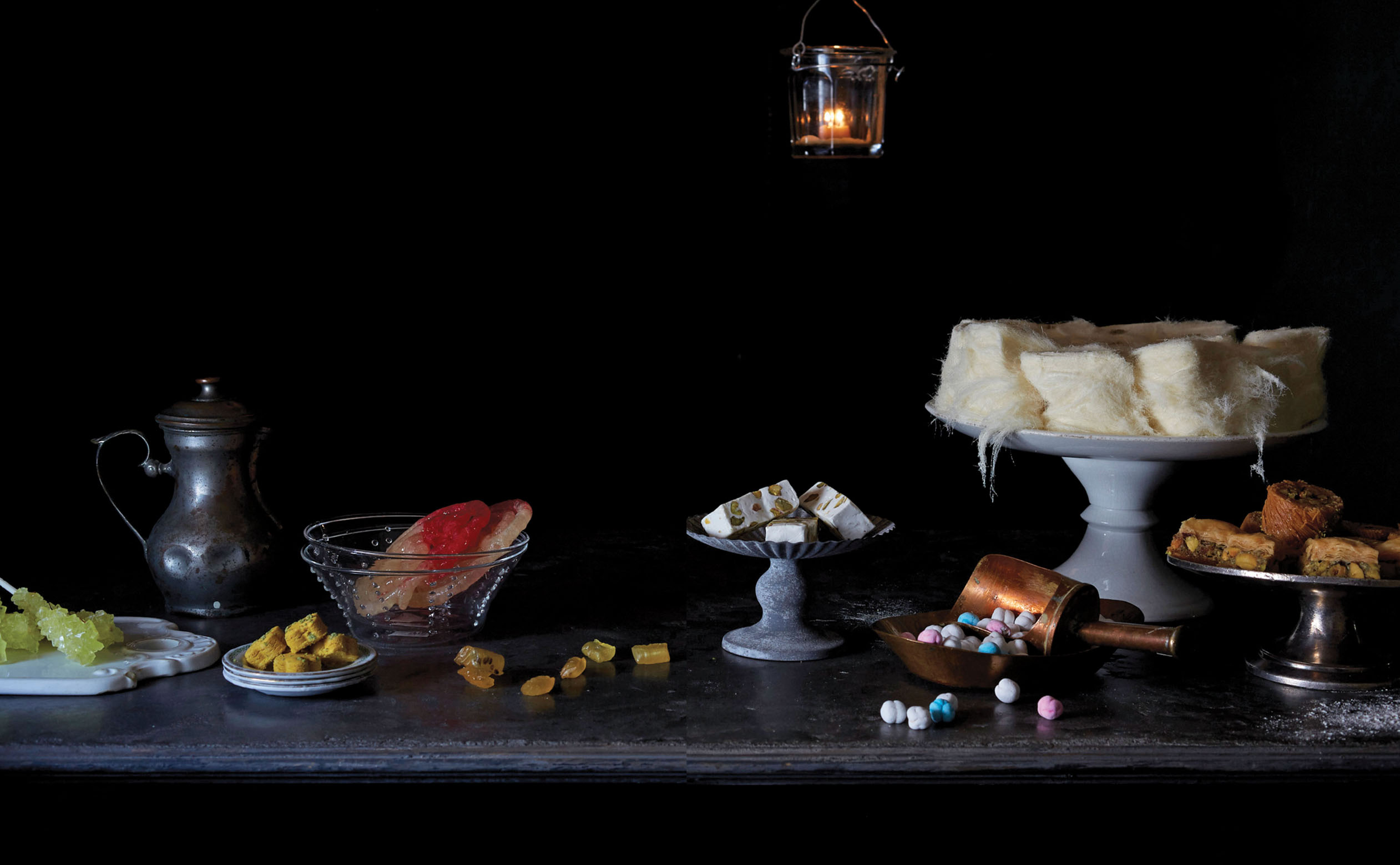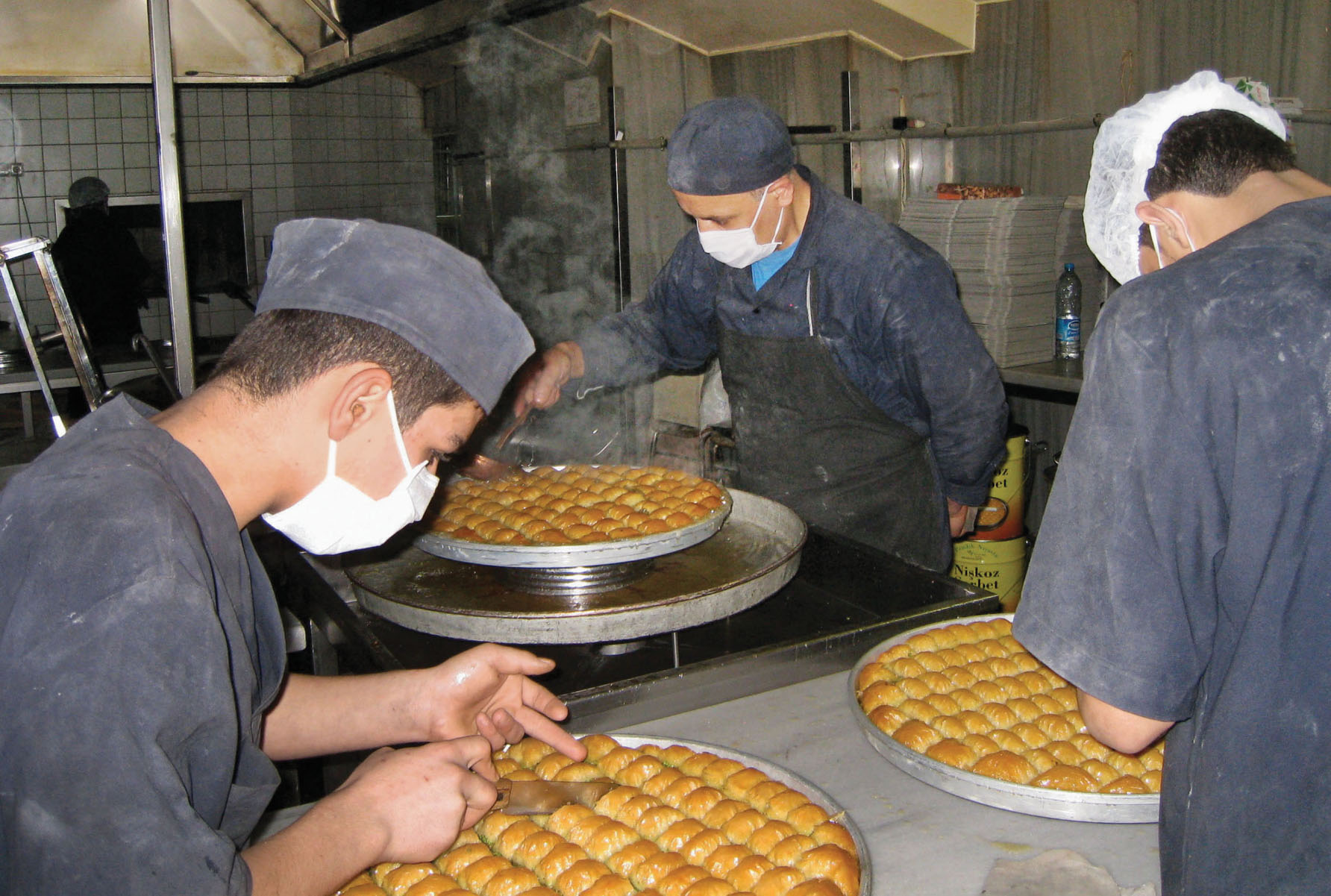
Sweets are as important to Muslims as bread or rice. They are an essential part of Muslim hospitality, served with coffee or tea when visitors come, or simply enjoyed between meals with family or friends. In some countries in the Arab world, the sweets are very sweet, often soaked in sugar syrup, whereas in other places like Indonesia and Malaysia, sweet confections have a little added salt to achieve subtle sweet-savory flavors.
Sweets are also an essential part of Ramadan, the month of fast, as well as the two important feasts, Eid el-Fitr (the feast of breaking the fast) and Eid al-Adha (the feast of sacrifice) that follow. During that month, most Muslims will break their daily fast with something sweet, either a drink, snacks, or simply dates before they move on to iftar, which is the first meal of the night. Whichever it is, that sweet little something will help smooth the transition from the long day’s fast into the night’s feasting.
In the early days of Islam, desserts were sweetened with molasses from dates, grapes, or carob, or with honey. Then in the seventh century, the Arabs discovered sugar (from the Arabic word sukkar, derived from the Persian shakar) when they invaded Persia—sugarcane was originally grown in the tropical Far East, and was taken from there to India and China and on to Persia in the fifth century—and from there, to Egypt, North Africa, Sicily, Spain, and other places they conquered. In fact, Egypt remains the world’s largest producer of cane sugar.
Specific sweets are associated with celebrations or special occasions—for instance, sugared almonds are merrily thrown at guests after a boy’s circumcision. And when a baby is born, Muslim parents will make sure that the first taste they give their baby is sweet, often chewing on a piece of date and rubbing the juice on the baby’s gums. The Prophet Muhammad is said to have carried out this practice, believing it helped to get the tiny digestive system going. There is even a tribe in Pakistan called Halwai, from halva, which means “sweet” in Hindi and Arabic. The Halwais were initially Hindu sweets makers who converted to Islam.
This chapter includes a selection of classic sweets from around the Muslim world, as well as sweets associated with particular religious occasions and various celebrations.

